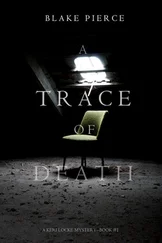When she and Jacqui were young, they had often been forced to wear worn, torn, ill-fitting clothing to school, with their widowed father angrily insisting there was no money to buy them anything better. Cassie had accepted her lot more readily than Jacqui, who had hated looking shabby and poor.
It made sense that her sister would have been drawn to one of the world’s fashion capitals, where every piece of clothing was trendy, beautiful, and new.
Gasping for breath, Cassie saw the street name ahead looked familiar.
This was the road she wanted. Now all she had to do was find the shop.
It was called Cartoleria, but she didn’t know if that was the actual name or a description. There had been a language barrier when speaking to the clerk on the phone. Cassie had managed to obtain the road name from the increasingly impatient woman, even though the only English she had known were the words “We are closing,” which she had repeated several times before finally snapping out, “ Addio ,” and slamming the phone down.
Cassie had decided the only way to find out would be to visit the store personally.
It had taken her a week to get organized, and to drive the whole way from Edinburgh, where she’d been staying, to Milan. She’d planned to arrive much earlier, but had been stuck in traffic coming into the city and had lost her way several times before finding a cheap place to park. Her GPS had malfunctioned and her phone’s battery was almost dead. Thankfully she’d thought to print the map out earlier. What time did most places close here? Six p.m.? Later?
Anxiety surged inside her as she saw the store ahead of her was already closing up for the day, the shopkeeper turning the sign on the door and switching off the lights.
“Excuse me. Cartoleria. Do you know which way it is?” she asked him, anxious that every second counted.
He frowned at her, and then pointed down the road and said something in Italian that she didn’t understand. At least he’d steered her in the right direction, because she’d been about to rush the other way.
“Thank you,” she said.
“Signorina!” he called after her, but Cassie wasn’t stopping for anyone.
She was breathless with excitement. There was a small chance that Jacqui might actually be working in this shop. Cassie imagined walking in and coming face to face with her sister. She wondered what Jacqui would do. She knew that she herself would scream with joy and hug her as tightly as she could. Then there would be the chance to talk, to find out what had happened and why Jacqui had disappeared for so long without getting in touch.
Even though it wasn’t very likely, Cassie couldn’t help but dream.
There it was, ahead. She saw the sign, Cartoleria, and broke into a run. They must still be open—they must. This was her chance, her opportunity to reconnect with the only family she still cared about.
She splashed over the rain-soaked paving stones, weaving between the slower-moving pedestrians sheltering under their bulky umbrellas.
Then she stopped, staring at the shop front in disbelief.
Cartoleria was closed.
Not just for the day, but forever.
The windows were boarded up, but through a gap in the peeling covers she could see the dark shell beyond. The sign above the door, battered and dingy, was the only reminder that this store had once been open.
Staring at the bleak, empty space, Cassie realized too late that she had misunderstood the impatient store attendant when she had called a week ago. The woman had been trying to tell her that they were closing up shop for good. If she’d figured that out at the time, she could have called back immediately, asked more questions, and been more persuasive.
Instead she’d driven hundreds of miles, only to be faced with the deadest of dead ends.
Her lead was gone, along with her hopes and dreams. She’d lost her only chance of finding her sister again.
Staring at the empty store, Cassie felt crushed by disappointment. She knew she should leave, walk away into the dark, damp evening and start the long journey back to her car, but she couldn’t bring herself to go.
It was as if turning away now meant giving up forever, and when she thought about it in that way, her feet felt rooted to the spot. She couldn’t shake the certainty that there must still be something, somehow, that would lead her to Jacqui.
Looking around, she saw one of the neighboring shops was still open. It looked to be a coffee shop and bistro. Perhaps somebody there would know who the owner of Cartoleria was, and where he or she had gone.
Cassie headed into the bistro, relieved to find shelter from the gusty rain. The interior smelled deliciously of coffee and bread, reminding her that she hadn’t eaten today. A massive chrome cappuccino machine stood in pride of place on the wooden counter.
There was space for only four tables inside, and all of them were occupied. There was an empty seat at the bar, though, so she sat there.
The harassed-looking waiter rushed over to her.
“ Cosa prendi? ” he asked.
Cassie guessed he wanted to take her order.
“Sorry, I don’t speak Italian,” she apologized, hoping he understood her. “Do you know who owned the shop next door?”
The young man shrugged, looking puzzled.
“I can bring you food?” he asked in broken English.
Realizing that the language barrier had brought an end to her questioning, Cassie quickly scanned the menu scribbled on the black chalkboard on the back wall.
“Coffee, please. And a panini.”
She peeled some notes from the shrinking stash in her wallet. The prices in Milan were even higher than she’d expected, but it was getting late and she was starving.
“You are Americana ?” the man sitting next to her asked.
Impressed, Cassie nodded.
“Yes, I am.”
“My name is Vadim,” he introduced himself.
He didn’t sound Italian, but her ear for accents was not nearly as good as his. She guessed he might be from somewhere in Eastern Europe, or perhaps even Russia.
“I’m Cassie Vale,” she replied.
He looked to be a few years older than her, which put him in his late twenties, and he was wearing a leather jacket and jeans. In front of him was a half-finished glass of red wine.
“You are on holiday here? Or working, studying?” he asked.
“I’ve actually traveled here to find somebody.”
The confession felt painful, now that Cassie feared she never would.
His thick brows drew together in a frown.
“How do you mean, find? Find someone in particular?”
“Yes. My sister.”
“You make it sound as if she is lost?” he asked.
“She is. I followed a clue which I hoped would help me find her. A while ago, she called my friend in the States, and we traced the number.”
“So you traced the caller ID and came here? That is some detective work,” Vadim said admiringly, as the waiter slid her coffee across the counter.
“No, I was too slow. You see, she called twice looking for me. The first number didn’t work at all. I only realized last week that the other call might have been made from a different number.”
Vadim nodded sympathetically.
“And now, Cartoleria is closed,” Cassie told him.
“The shop next door?”
“Yes. That was where she phoned from. I’m hoping to find out who owned it.”
He frowned.
“I know Cartoleria is a chain of stores. There are others elsewhere in Milan. It is an Internet café and sells—pens, pencils, those items.”
“Stationery,” Cassie suggested.
“Yes, that is it. Perhaps if you call another store, they could help you find the manager of this one.”
Читать дальше












